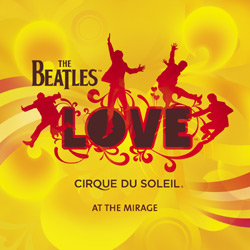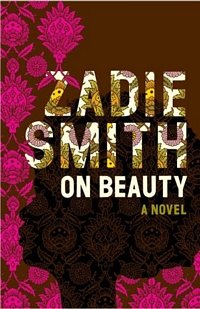
Being a Beatles fan in Australia can be an unsettling experience. I first noticed this when talking about The Beatles with an Australian girlfriend in 1999. I had assumed that, being of reasonably sound mind, she would agree with my contention that the Beatles were, in fact, avatars of the Godhead, sent by a merciful and compassionate universe to light our way through the dark valley of this existence. Something like that. Anyway, she stopped me short, sniffed and said: "I don't really rate The Beatles. The Stones were much cooler". The Stones were much cooler? Huh? Now, obviously The Stones have got some Tunes. I bow to no man in worshipping Wild Horses (that they didn't write it and I prefer The Sundays version is neither here nor there) and Gimme Shelter is colossally good, but really, come on. You don't gaze up at the Horsehead Nebula and complain that it isn't cool enough. Nor do you don't look up at the Taj Mahal and sniff that it's not hardly rock'n'roll. To do so would be point-missing on an epic scale; when things are too sublime for mere human minds to grasp, the only correct response is awe. So lay off the Beatles-hate. Let me say again: you may think that The Beatles were four pleasant chaps from Liverpool who started making beat music and then went on to take some drugs and go a bit mental. You may also think that you can fruitfully compare The Beatles to the Stones. Not so. It's not a case of comparing apples with oranges. It's more a case of comparing apples with Sublime Manifestations Of The Benevolent Godhead, sent to light our way. Got that? Good.
And yet, I've met more than a few people in the land Down Under who seem to think that The Beatles are just too weird, not rocky enough, not my cup of tea, thankyou. Why this I don't know, and is a subject for another time. The Australian Girlfriend made some noises to the effect that Australia shared with America a preferrence for blue-collar, earthy, no-frills music, not yer pretentious art-school nonsense. Which would certainly explain why bands like John Butler Trio, Something For Kate, Eskimo Joe, You Am I, [fill in revered Aussie pub rockers here. There are millions of 'em] etc. But I digress.The release of A New Beatles album should be an occasion for national rejoicing (and would drown out the Ashes crowing that's sure to turn the next coupla months into a living nightmare) but I suspect that it won't.
Love, the giant Beatles mash-up that soundtracks that latest Cirque Du Soleil extravaganza, is pretty damn awesome. Which is that least you expect from yer average Godhead. What's so good about it? Haven't we heard mash-ups before (the Grey Album, Revolved)? Sure, but none of those guys have had access to the original masters, and it's the fact that so many of the songs have been so beautifully remastered that's so cool - songs that had previously been mixed down onto an eight-track have had their constituent instruments split out and polished up, so now songs like I Am The Walrus and A Day In The Life sound reborn. A Day In The Life is especially wonderful. You can hear all the instruments in the symphonic freak-out, and the vocals after "I fell into a dream" are now startlingly clear. There's some kind of reggae breakdown in Hey Jude, with bass parts I've never heard before. As for the mash-ups, it all works astonishingly well, given how awful it could have been. Being For the Benefit Of My Kite rolls out on the psych noise of I Want You/She's So Heavy, Within Without You has been given Tomorrow Never Knows pummelling undercarriage, and there's a brand new string part written by George Martin for a demo of While My Guitar Gently Weeps.
It's all too good. I'm off to worship.
Wednesday, November 29, 2006
Send In The Clowns.
Monday, November 27, 2006
U2 Gone Poo
The very next day I went back and listened to POP, to see if maybe I had been kidding myself about its qualities. Not a bit of it. It sounds great. What's best is the quality of doubt that, again and again, can be read into Bono's lyrics. Please and Wake Up Dead Man are both pleading, questioning, confused, and are great. Last Night On Earth rocks harder than any of their later efforts, and the opening trio of songs punch hard to the solar plexus, wherever that is. Best of all though, I think, is Gone, where for once Bono seems to simply give up the preaching and retreat as if into a sensual bliss, aware that it's an abdication of his sloganeering self: "Goodbye/You can keep this suit of lights/I'll be up with sun/ I'm not coming down". An improvement on "A mole/living in a hole". And Please, while it deals with a similar subject as Sunday Bloody Sunday, is far more tortured, the cracked 'please' of the chorus an exhortation that knows it's falling on deaf ears.
All this, coming off a run of Achtung Baby, Zooropa and Passengers, were the U2 of awesome juxtapositions, of calling for pizzas and calling a beseiged Sarajevo. They embraced techno hip-hop and popular culture's dazzling contradictions and made music as big as before but this time with teeth. The worthy was always there, but the vehicle was sleek and sharp. Once they emerged from a lemon. Now they are the lemon.
Co-exist? Shove it up yer bum.
Tuesday, October 17, 2006
Burial - Burial
 I've paid almost no attention to the microgenre called Dubstep. Whenever I saw the word, I immediately turned the page, clicked away, turned off. I'm not at all sure why. Something to do with it seeming to be such a theorist's genre.
I've paid almost no attention to the microgenre called Dubstep. Whenever I saw the word, I immediately turned the page, clicked away, turned off. I'm not at all sure why. Something to do with it seeming to be such a theorist's genre.
Well, that's my loss. Burial's self-titled debut album is a thing of twilit wonder, crepuscular and grainy, Ghost Town purged of all pop. I've heard mention made of Tricky's Maxinquaye, and while Burial sounds nothing at all like that album (I listened to it for the first times in ages the other day. I'd forgotten how humid, how florid it sounds), there is a similar sui generis feel, that this record is something new. On the other hand, it could be that an album this hermetically sealed will make for a very poor antecdent: We'll see.
Buy Burial from Amazon
Emily Haines & The Soft Skeleton : Knives Don't Have Your Back
 Emily Haines is a Broken Social Scene-ster, and the daughter of a noted jazz poet (I learn). Her debut album, four years in the making, is an absolute joy, although that word has a positivity that's out of place when discussing Knives; it's pretty crushingly bleak in places.
Emily Haines is a Broken Social Scene-ster, and the daughter of a noted jazz poet (I learn). Her debut album, four years in the making, is an absolute joy, although that word has a positivity that's out of place when discussing Knives; it's pretty crushingly bleak in places.
The song that really struck is the first single, Dr Blind.
If the dizzying highs
Don't subside
overnight
Dr Blind
Just prescribe
The red ones
The song is built around a kind of monumental piano (similar to Massive Attack's False Flags) and has the funereal pace of Radiohead's Exit Music, and something of that song's tightly enfolded structure and atmospheres - distant guitars, tugging strings, feedback.
Crowd Surf Off A Cliff has a repeated refrain of "I wake up lonely", followed by "Rather give the world away/Than wake up lonely". But the naked emotionalism of the album nevers seems un-earned, and that's partly because her voice is beautifully plain, allowing the lyrics to do the work, and partly because there's an atmosphere of defeated menace to the best songs ('With all the luck you've had/Why are your songs so sad?').
Which is all very annoying because it seems I should be listening to Joanna Newsom's Ys, if the feverish chatter across the interweb is anything to go by. Next time.
Tuesday, October 03, 2006
Two books
 I ought to mention three books I read recently; three doozies.
I ought to mention three books I read recently; three doozies.
First up was Zadie Smith's On Beauty. Now, I had had no inclination to read this whatsover. Since aggressively not reading the exceptionally popular White Teeth (how could a book that popular be any good? Come on. See also: Billy Elliott, A Beautiful Mind), I was happily convinced that I never needed to read another word of Zadie (Zadie. What's that about? etc) And when James Wood took apart The Autograph Man in The LRB (see "Fundamentally Goyish", I thought: Zadie and me? We're finished.
Consequently, none of On Beauty's good notices penetrated my carapace of lazy prejudice. So what changed my mind? A combination of things. One thing was a perspicacious interview with Ian McEwan in the Believer Book of Writers Talking To Writers. She quizzed Ian about his then-new book Saturday and pointed out that the book made a self-conscious effort to discuss the real world of work. That may sound dull as dirt, but since most celebrated authors wouldn't know one end of an office from another, it's actually something of a rarity and quite an achievement (yes, yes: I know Perowne is actually a brain surgeon, but it sure makes a change from novel's featuring poets, painters, writers, academics). But she also pointed out that McEwan wants to eat his cake and have it too; there's a long description of cutting open the skull which is a also a lightly disguised metaphor for the craft of writing (I think the surgeon evens uses a pen or brush).
Another factor was Zadie's chat with John Mullan in the Guardian book club about On Beauty. She came across as humble, massively critical of her work to date, a reformed advocate of Theory ("I read essays I wrote as an undergraduate, and they're literally incomprehensible") and an acute observer of culture, with no particular axes to grind.
And so, one day, there I was, realising that I wanted to read the book. You gotta love the unconscious.
The book? It's great, actually. Using Howards End as a template or scaffold, it tells the story of a white English academic (Smith admitted that McEwan's ability to write about work was quite beyond her) in America and his black American middle-class family, the wife struggling in her mostly white social circle, the youngest son a hip-hop devotee convinced he's not black enough, the daughter a classic do-gooder trying to convince a rapper his work is poetry (he's the Leonard Bast figure) and pulling all sorts of strings to get him into her poety class. The book is hilarious and moving, her way with dialogue often breaktaking. My only criticism is that perhaps the book doesn't get under the skin of its characters to anything like the same degree as, say, The Line Of Beauty: she's not as harsh on them. Still, a great read (if not a great book). The second book is Ali Smith's The Accidental. I knew literally nothing about this book or its author, except a vague memory of the cover of 'Hotel World' (and the fact that she had brilliantly titled her short story collection "Other Stories And Other Stories"). The book is about a disintegrating family holidaying somewhere in darkest Norfolk: The wife is trying to write the latest in her series of hugely popular historial narratives, the husband (an academic!) is, you guessed it, having an affair or affairs with various students, the son, outlandishly nerdish and guilty as hell, is contemplating suicide, and the youngest daughter is besotted with her new digital camera and the new ways of looking at her world it affords her. Into their lives comes a drifter, claiming her car has broken down, and would they mind if she stays?
The second book is Ali Smith's The Accidental. I knew literally nothing about this book or its author, except a vague memory of the cover of 'Hotel World' (and the fact that she had brilliantly titled her short story collection "Other Stories And Other Stories"). The book is about a disintegrating family holidaying somewhere in darkest Norfolk: The wife is trying to write the latest in her series of hugely popular historial narratives, the husband (an academic!) is, you guessed it, having an affair or affairs with various students, the son, outlandishly nerdish and guilty as hell, is contemplating suicide, and the youngest daughter is besotted with her new digital camera and the new ways of looking at her world it affords her. Into their lives comes a drifter, claiming her car has broken down, and would they mind if she stays?
What makes the book so rich is that the tale is told from each person's POV completely successfully. The philandering academic's section deteriorates (or elevates), under the pressure of his infatuation with the intruder, into a delirious sonnet sequence. The wife interogates herself in the style of her popular books. And the children are captured brilliantly, the son in the style of a precocious mathematician who's been very very bad, the daughter a wide-eyed innocent trying to understand the world.
It's an old-fashioned book in its unswerving commitment to modernism and formal tricksyness, but for all that, in fact thanks to that, it's never less that compulsively readable. In fact, the only better novel this year is the one I read next: James Meek's The People's Act Of Love.
Sentences
Reading Lolita (finally...), I came across the following sentence which I think is worth sharing:
"My heart beat like a drum as she sat down, cool skirt ballooning, subsiding, on the sofa next to me, and played with her glossy fruit. She tossed it up into the sun-dusted air, and caught it-it made a cupped polished plop"Love that ravishing 'sun-dusted'. I suspect I'm going to be saying that quite a bit. Although I probably won't say it's a quote from a fictional pederast...
Sunday, September 10, 2006
The Age of Horrorism
Essential reading in The Observer, as Martin Amis demonstrates again that, while his recent fiction has been pretty ropey, his essays achieve routine superbity. The Age Of Horrorism, written with the five-year anniversary of September 11tth very much in mind, is an analysis of the West's seemingly willed inabililty to come to terms with Islamism's 'maximum malevolence'.
Time to re-read Terror And Liberalism, and check out The Looming Tower and A Fury For God.
Amis ends with this quote from Joseph Conrad:
'The world of the living contains enough marvels and mysteries as it is - marvels and mysteries acting upon our emotions and intelligence in ways so inexplicable that it would almost justify the conception of life as an enchanted state. No, I am too firm in my consciousness of the marvellous to be ever fascinated by the mere supernatural, which (take it any way you like) is but a manufactured article, the fabrication of minds insensitive to the intimate delicacies of our relation to the dead and to the living, in their countless multitudes; a desecration of our tenderest memories; an outrage on our dignity.
'Whatever my native modesty may be it will never condescend to seek help for my imagination within those vain imaginings common to all ages and that in themselves are enough to fill all lovers of mankind with unutterable sadness.'
('Author's Note' to The Shadow-Line, 1920.)
Sunday, September 03, 2006
Finding Nevermind

So I find myself listening to Nevermind again for the first time in donkey's years, prompted by Lord knows what. Nirvana were just about the first band I loved where the chief pleasure was no longer cerebral but physical. Before them, I was into the blustery pablum of U2, the religiose Americana of REM, the sticky Freudian surrealism of The Cure, the psychedelic polemic of Levitation. But, listening to a John Peel one evening in 1992 or thereabouts, I heard a session from a band that John was getting pretty animated about. The song was called, I think, Return Of The Rat, and it was a cover version of a song by The Wipers (I later discovered). I wouldn't say that my world changed there and then, but something about the singer, something about the music’s forward rush, stayed with me. So when I later read an ecstatic live review of their Reading show in the MM, a bell went off. I would take a punt on their debut album.
Fast forward to now. Watching what passes for a rock band on this year’s MTV Awards neatly exemplifies Nirvana’s unique place in the culture. Has ever a rock band so effectively combined the brutal power of hardcore punk with the silky pop nous of The Beatles? 'Course not. And since then, there have been heavier bands, and there have been poppier bands. But those that have had chart-success have been more nakedly commerical than anyone ever accused Nirvana of being. And those that rock tend to be willfully obtuse. Fair enough I suppose: you wouldn't want to find yourself accidentally becoming Bush or Nickelback. Even Nirvana's grunge contemporaries were almost nothing like them, owing more to classic hard rock than to the punk and alternative music that were Nirvana’s well-spring.
Listening to Nevermind now, I’m struck by how raw it is. This is odd, because for the longest time, it was an excepted truth that Nevermind was an album perhaps too smooth for its own good, that everything had been covered in an expensive studio sheen, that the band were embarrassed to sound so chart-friendly, that In Utero would be their comforting return to the ‘real’. Well, sure. But this perception owes more, I think, to the precision-tooled ecomomy and power of the songwriting, a great leap forward from the reliance on the sludge riffs and guttural screams that had made Bleach such a physically draining experience, than the production, which after a small lifetime of The Killers and other identikally produced bands, sounds incredibly dynamic.
It seems to me that if Nevermind has been recorded today, it would have been mastered with far less dynamic range than is the fashion. Some bits are quiet, there’s often a raggedness to the guitar-playing that would send Panic! At The Disco or, heaven help us all, All-American Rejects whimpering back to the pro-tools. (Talking of dynamic range, am I the only one bugged by this notion that Nirvana simply ripped off The Pixies' quiet loud quiet loud trick? The bridges into LOUD in Nirvana are, more often than not, better designed and more exciting. And anyway, who gave Pixies the patent on that dynamic? It’s been a staple of classical music for just about the whole of the 20th c. And where in Pixies can Drain You’s colossal break-down and build-up and thrilling pay-off be found?) A track like Drain You is, of course, structurally similar to an epic techno track: establish the theme, strip it all away, signal that the noise is massing, build as gradually as possible, then stand well back as a skin-tingling mind-fuck overwhelms the listener.
And I’d forgotten, or never noticed, the brazen appeal to non-jocks and the girls who like them, and can see now how depressing it was for Kurt that it was precisely not this crowd who formed the core of their new audience. How strange it must be for a band whose main love had been alternative rock and pop – Sonic Youth, Pixies, Raincoats, Melvins, hardcore - to face the fact that their sound was exactly what the hair metal-loving hordes were after. I guess they weren’t to know: who could have predicted that super-sleek super-heavy punk rock would have such a massive appeal. Famously, In Bloom sneers at exactly the kind of fan Kurt despised. But there are all kings of lyrics placing a universe of distance between Kurt and the lick-my-lovepump crowd: “I’m so horny/that’s OK, my will is good”. What with the nerd glasses and the dress-wearing, Kurt could hardly have been more ambivalent about the iconography of rock
Side 2 is still the killer for me. The thrash of Territorial Pissings, the aforementioned break-down of Drain You, the melodic genius of On A Plain (and the harmonies on “Love myself better than you”), the visceral Stay Away, the haunted Something In The Way – I prefer these to most of the hits on side 1.
Now I’m going to listen to In Utero, which I thought I knew better but which could also turn out to be as fresh and hard as a steel daisy. But I might not write about that, since that would mean owning up to all manner of experimentally tortured behaviour at University, and I’m not quite sure you or I am ready for that.
Friday, May 05, 2006
What music is
"The erupted radiations of far more powerful fundamental processes whose energies revolve in the inaudible"
- Ernst Kurth
"Without music, life would be a mistake."
- Neitzsche





